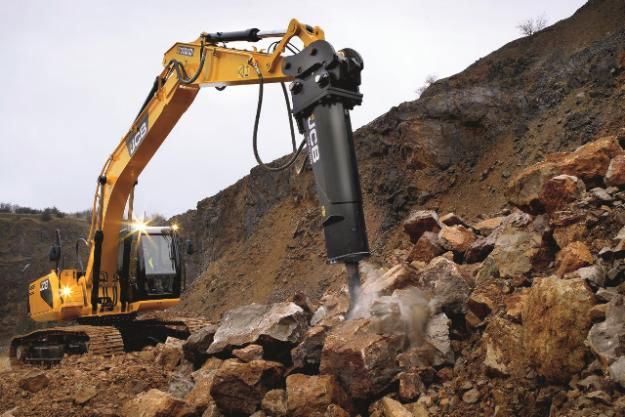Ideal Dump Truck Companies in Ohio - Top-Rated Dump Truck Providers
Ideal Dump Truck Companies in Ohio - Top-Rated Dump Truck Providers
Blog Article
Comprehensive Excavation Strategies: Grasping the Fundamentals for Success
In the realm of building and civil engineering, the significance of efficient excavation approaches can not be overstated. The cautious preparation, specific execution, and careful focus to information required in excavation jobs require a comprehensive method that incorporates numerous fundamental elements. From initial dirt analysis to the execution of security steps and routine development monitoring, mastering these core aspects is crucial for achieving success in any excavation endeavor. However, real proficiency exists not simply in recognizing these principles yet in seamlessly integrating them to navigate the intricacies of excavation projects with skill.
Understanding Excavation Project Preparation

Successful excavation tasks are developed on the foundation of detailed and careful planning. The initial stage of any kind of excavation project is the preparation stage, where crucial choices are made that can substantially impact the result of the project. During this stage, it is necessary to gather all appropriate information regarding the site, consisting of topographical surveys, dirt composition, and any kind of potential threats that may exist. Recognizing the job range, timeline, and budget plan restraints is vital for creating a detailed excavation strategy that ensures the task's success.
One trick facet of excavation job planning is the development of a thorough timeline that details the sequence of tasks, milestones, and target dates. By thoroughly taking into consideration all these aspects throughout the planning phase, excavation tasks can be performed successfully and efficiently, leading to effective end results - lancaster trenching.
Dirt Analysis and Site Analysis
Conducting complete dirt analysis and site examination is a crucial action in the prep work phase of any type of excavation task. Dirt analysis involves figuring out the make-up, structure, and buildings of the dirt at the excavation website. This information is important for recognizing the soil's bearing capacity, wetness material, and possibility for disintegration, which are key consider figuring out the excavation methods and equipment needed for the task.
Website assessment goes past soil evaluation and encompasses a wider evaluation of the general website problems. This evaluation includes identifying any type of prospective threats, such as underground utilities, environmental concerns, or unstable terrain, that could impact the excavation procedure. By completely reviewing the site, job managers can establish reliable excavation methods that prioritize security, efficiency, and environmental defense.
Making use of sophisticated innovations like ground-penetrating radar, soil tasting, and drone studies can improve the accuracy and performance of dirt analysis and website analysis. Spending time and resources in these preliminary actions can eventually save time and protect against pricey hold-ups or complications throughout the excavation process.
Devices Option and Usage
Effective excavation tasks depend greatly on calculated tools selection and utilization to ensure ideal performance and performance. Choosing the best devices for the work is essential in optimizing efficiency and minimizing downtime. Elements such as the sort of dirt, deepness of excavation, and job scope play a significant duty in identifying one of the most suitable devices for the job handy.

Along with selecting the suitable devices, appropriate usage is crucial to task success. Operators has to be educated to manage the tools securely and effectively - lancaster trenching. Routine maintenance checks and timely repairs help avoid break downs and guarantee consistent performance throughout the task
Safety And Security Actions and Rules Conformity
In the realm of excavation tasks, focusing click here for info on precaution and compliance with regulations is paramount to guaranteeing a protected and legally sound operational environment. Precaution incorporate a variety of practices, including carrying out thorough site analyses, applying proper signage and obstacles, and supplying sufficient safety and security training for all workers see page associated with the excavation procedure. Adherence to guidelines, such as OSHA requirements in the USA, makes sure that the excavation job meets the necessary criteria to shield employees, bystanders, and the surrounding setting.

Tracking Development and Adjusting Techniques
How can predict supervisors efficiently track the development of excavation projects and adjust their techniques accordingly to enhance outcomes? Surveillance progression is necessary for making sure that excavation projects remain on track and fulfill due dates. Task managers can make use of different devices and methods to track progress, such as day-to-day development reports, routine site examinations, and advanced surveillance innovations like drones and GPS tracking systems. By continually keeping an eye on the project's innovation, managers can recognize any potential hold-ups or issues early and take proactive procedures to address them.

Conclusion
In verdict, grasping the fundamentals of thorough excavation methods is vital for the success of any task. By comprehending project preparation, evaluating dirt and site problems, choosing appropriate tools, abiding by safety laws, and keeping an eye on progress, task managers can make certain a efficient and smooth excavation procedure. Applying these methods will certainly cause successful results and decrease prospective threats or setbacks throughout the excavation task.
The initial stage of any excavation task is the planning phase, where crucial decisions are made that can dramatically impact the outcome of the job. Understanding the project timeline, extent, and spending plan restraints is vital for developing a comprehensive excavation strategy that ensures the project's success.
Exactly web how can predict supervisors effectively track the improvement of excavation tasks and adjust their strategies accordingly to enhance results? By carefully checking progression and being prepared to adapt techniques, job supervisors can improve the total success of excavation tasks.
By understanding project planning, evaluating dirt and website problems, picking appropriate equipment, complying with security guidelines, and checking progression, project managers can guarantee a reliable and smooth excavation process.
Report this page